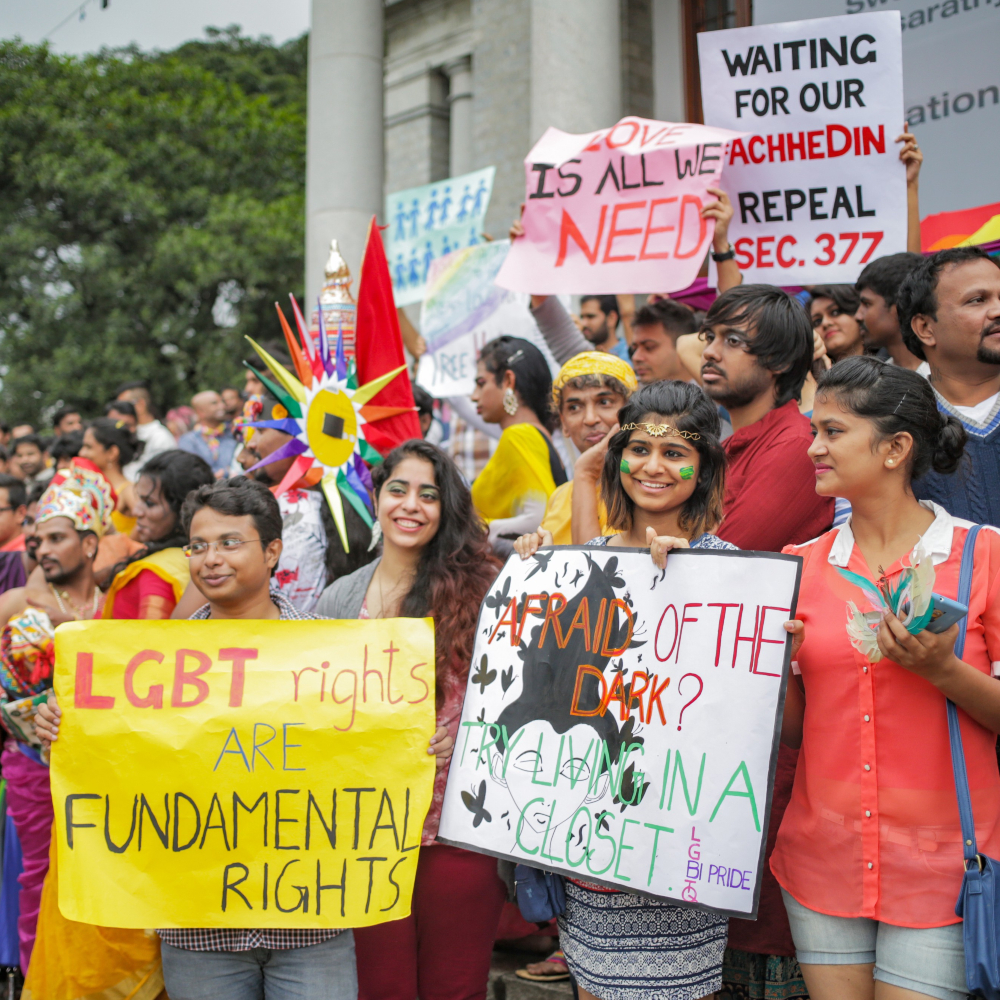Historical Context
Moving forward in lesbian, gay, bisexual, transgender, and intersex (LGBTI) human rights is challenging, especially with additional obstacles presented by the COVID-19 pandemic. More importantly, to offer full respect to the people of India, one needs to look at the broader historical context. India took a giant step back—from what was once a more inclusive society—with the Indian Mutiny of 1857. Not only did this bring India under direct British rule from 1858-1947, it also criminalized homosexuality. BBC News explains the context, “The British brought their own rules to India, including the Section 377 which banned homosexuality and made it a criminal act. This law was enforced by them, but it didn’t conform with India’s attitude toward homosexuality. It was more to do with their Christian belief systems.”
According to historian Harbans Mukhia, “In 2018, we recovered what we had lost during colonial times—a more open attitude toward the LGBTI community.” From the West it might look like a step forward, but from India, it’s a step forward after a century-long setback. According to BBC News, reversing Section 377 brought India back to its roots, “India had a more open attitude to homosexuality before the Raj and there is ample evidence of it in medieval history and mythology. Love was celebrated in India in every form.”
Continued Work to Protect LGBTI People
Overturning Section 377 is an important step and helps create a legal platform for change. However, the change needs to be focused on the most vulnerable LGBTI people—youth. Kyle Knight at Human Rights Watch shares some bleak statistics: “UNESCO surveyed 371 sexual and gender minority youth, and gathered in-depth information from more than 60 through focus groups in Tamil Nadu state. Eighty-four percent of participants reported being bullied, most by other students, but in one-fifth of those cases by a male teacher. Only 18% of those who were bullied said they reported the incident to school authorities.” The legal changes are good, but more needs to be done to protect the LGBTI human rights of Indian youth. It will be necessary to train teachers to stop anti-LGBTI bullying. 2019 brought the passage of India’s transgender rights law, which according to Kyle Knight “isn’t worth celebrating.” Here’s why—the new law “expressly prohibits discrimination against trans people in education, employment, health care, and several other spheres offer fertile ground for challenging those provisions of the law that are discriminatory. The new law also recognizes intersex people but offers them no specific protections.” Recognition under the law is good, but protection under the law would be better.
Current LGBTI Protection Challenges: COVID-19, HIV and Economic Insecurity
Protection of LGBTI human rights is further challenged by the COVID-19 pandemic. India’s LGBTI community, like many countries, is more vulnerable to the pandemic because of worsened economic conditions. Further, COVID-19 is especially deadly to those with compromised immune systems. A study by Journal of the International Aids Society revealed the HIV infection rate of India’s transgender people was “26 times higher than the national population.” LGBTI people are facing a greater threat from a disadvantaged place of housing and food insecurity.
Human rights issues are often human problems, with human solutions. One issue with LGBTI human rights in India is that the West planted discriminatory laws in the 1800s. For India to continue progressing in LGBTI human rights, humans from around the globe must both stay aware of and call attention to the current climate that Indian LGBTI individuals face. By continuing to bring light to their stories, struggles, and successes, we collectively can pressure their leaders to work towards a culture where all human beings are free and equal in dignity and rights.
Joel Klausler, 26th June, 2021

